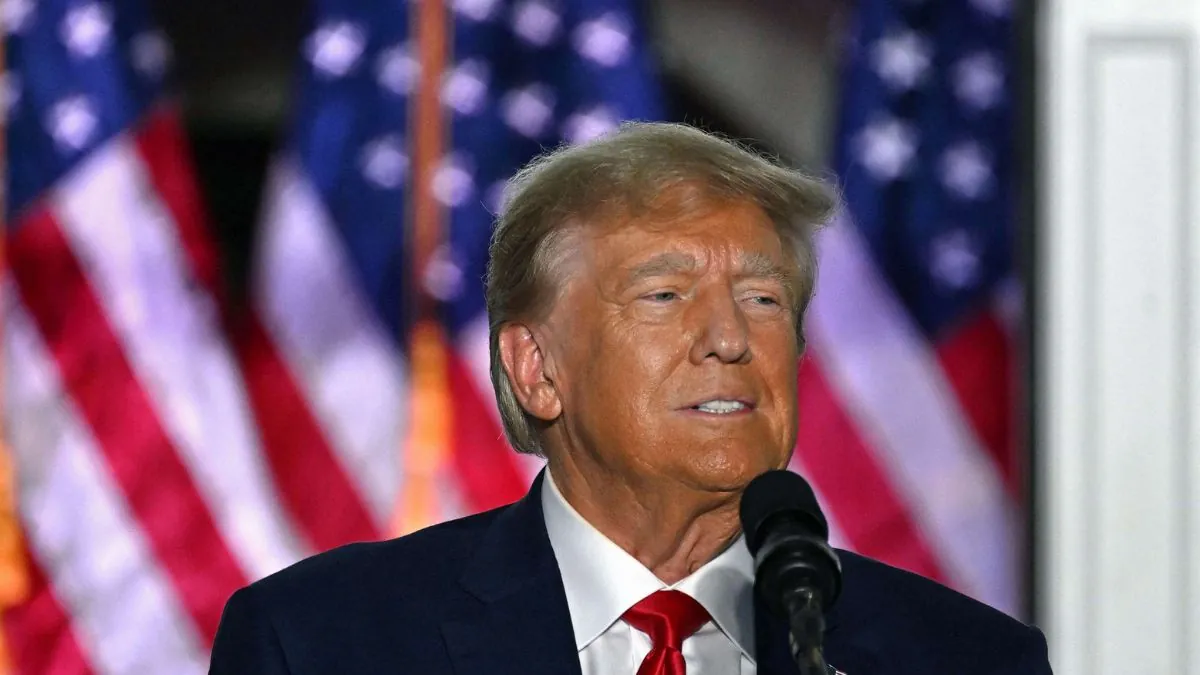Former President Donald Trump and his co-defendants in his New York civil fraud case have recently submitted a bond of $175 million. This decision comes after a judge’s ruling that they had been misrepresenting the value of Trump’s properties for several years. The bond has been underwritten by an insurance company led by a billionaire, who initially gained prominence by providing high-risk, high-interest loans to individuals with low credit scores who were looking to purchase cars.
Don Hankey, a relatively unknown mogul, amassed his $7.4 billion fortune by venturing into the world of car dealerships and offering subprime auto loans. Forbes magazine reveals that Hankey’s wealth surpasses that of Trump, who is estimated to be worth $6.4 billion, including his significant stake in the recently established Trump Media & Technology Group.
According to Hankey, he has never met or spoken with Trump. He mentioned in an interview with The Associated Press that his company, Knight Specialty Insurance, provided cash and bonds as collateral for Trump’s appellate bond. This bond serves as a temporary guarantee for payment if the judgment against Trump is ultimately upheld on appeal.
“We at Knight Insurance take pride in offering our bond services to anyone in need,” Hankey expressed to the wire service.
Who is Don Hankey?
Hankey, 80, got his start in the auto industry when his father purchased a stake in a Ford dealership in Los Angeles in 1958. Hankey, a teenager at the time, began his summer job washing cars before transitioning to sales, he told the Los Angeles Business Journal last year.
Hankey’s father died while he was studying finance at the University of Southern California, and the family lost their part in the auto dealership. However, a few years after Hankey graduated, his family repurchased the dealership with a $250,000 loan.
How did Hankey get into the car loans business?
After purchasing the dealership, Hankey courted buyers who other vehicle dealers frequently rejected: subprime loans. His dealership offered the loans, as opposed to other vehicle dealerships, which normally turn to banks for auto financing.
Hankey told the Los Angeles Business Journal that his showroom was frequently full of individuals complaining about terms they thought were unfair.
“We had beef going on, and at the same time, people were coming in and buying cars,” Hankey said in an interview. “But everything worked. “And you’d think that someone buying a car would be annoyed to see someone else haggling about a payment, but it didn’t appear to matter.”
What other businesses does Hankey own?
According to the Los Angeles Business Journal, Hankey went outside auto dealerships after recognizing a need for subprime auto loans outside of Los Angeles.
He founded Westlake Financial Services, which, according to Forbes, currently partners with over 30,000 vehicle dealerships across the United States to give auto loans to people with bad credit. Westlake is now part of the Hankey Group, which also handles other financial services firms, including Knight Insurance Group, the company that issued Trump’s bond.
Is Hankey a Trump supporter?
According to Hankey, in an interview with Bloomberg News, he confirmed that he voted for Trump. However, he emphasized that his decision to extend the bond was not influenced by his support for the real estate developer.
“I did vote for him in the past, but in this case, it’s simply a business transaction, and that’s how we operate,” Hankey shared with the publication. “I’ve never had the opportunity to meet Donald Trump in person or have a conversation with him over the phone.”
Axos Bank, where Hankey holds a significant stake as a non-institutional investor, reportedly supplied the funds to refinance Trump Tower and secure a $100 million loan in 2022. This transaction occurred during a time when the Trump Organization’s real estate values were being questioned as part of the New York fraud case. Hankey stated that he was not aware of the deal until after its completion.
How does the $175 million bond work?
When a defendant decides to appeal a court ruling, they can use appeal bonds to temporarily halt the enforcement of any financial judgment. This allows the legal process to proceed while ensuring that the defendant’s assets are protected.
Insurance broker NFP states that insurers usually issue the bond once they receive evidence of collateral and impose a fee, which can range from 1% to 2% of the bond amount. Consequently, Trump may be paying up to $3.5 million annually to Knight Insurance for the bond guarantee.
If Trump’s appeal of the ruling is successful, he will not be required to pay anything to the state and will receive a refund for the amount previously paid.
“One of Trump’s lawyers, Alina Habba, expressed that President Trump has fulfilled his promise and posted bond. He eagerly anticipates the opportunity to uphold his rights through the appeals process and overturn this unjust verdict.”

